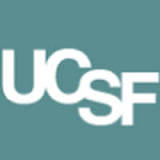The Effects of Physiologic Oxygen Tension on Clinical In Vitro Fertilization Outcomes
| Status: | Completed |
|---|---|
| Conditions: | Women's Studies, Infertility |
| Therapuetic Areas: | Reproductive |
| Healthy: | No |
| Age Range: | 18 - 42 |
| Updated: | 3/30/2013 |
| Start Date: | March 2010 |
| End Date: | July 2013 |
| Contact: | Heping Zhang, PhD |
| Email: | rmn-Coordinators@panlists.yale.edu |
| Phone: | 203-785-5185 |
A Prospective, Randomized, Double-Blind, Controlled Clinical Trial of the Effects of Oxygen Tension on Clinical In Vitro Fertilization Outcomes
Primary Aim
- Evaluate whether human embryo exposure to physiologic levels of oxygen during culture
improves the percentage of women who deliver a baby following in vitro fertilization
and embryo transfer.
Hypothesis to be tested: Physiologic oxygen tension during embryo culture, which
approximates the oxygen tension in the fallopian tube and uterus, improves live birth rate
in clinical In Vitro Fertilization Embryo Transfer (IVF-ET).
Secondary Aims
Evaluate whether human embryo exposure to physiologic levels of oxygen during culture during
in vitro fertilization and embryo transfer
- improves embryo cleavage
- improves clinical pregnancy rate
- reduces multiple pregnancy rate
- reduces miscarriage rate
Hypothesis to be tested: Physiologic oxygen tension during embryo culture, which
approximates the oxygen tension in the fallopian tube and uterus, improves embryo cleavage
and clinical pregnancy rates and reduces miscarriage rates in clinical IVF-ET.
Study Design
This will be a multi-center, prospective, double-blind clinical trial of physiologic (5%)
oxygen tension in culture media vs. standard of care, atmospheric (SOC, 20%) oxygen tension
with 840 eligible couples recruited to participate. The randomization scheme will be
coordinated through the central data coordinating center (DCC-Yale) and the randomization
will be stratified by age group of the woman (18-34, 35-37, 38-40 and 40-42) and each
participating site.
Treatment
Couples will be randomized to either have their gametes and embryos placed in a physiologic
(5%) oxygen atmosphere or in the currently widely used atmospheric (20%) oxygen atmosphere.
Inclusion Criteria:
The critical inclusion criteria will be the diagnosis of infertility and the need for in
vitro fertilization as determined by the treating clinician. (We do not plan to alter the
standard of care for the indication for IVF at any of the sites.)
- Couple's age must be between 18 and 42 years old
- Patient and partner are scheduled to undergo in vitro fertilization for treatment of
infertility
- Couple able to participate in a research project and A) Able to understand study
requirements B) Willing to sign informed consent C) Able to return for required
follow-up D) Have access to telephone
Exclusion Criteria:
Critical exclusion criteria for this trial will be medical conditions which may complicate
treatment or no plans to undergo embryo transfer, as in patients banking embryos prior to
cancer therapy. In addition, donor egg and frozen embryo transfer cycles will be excluded.
- Medical contraindication to egg retrieval or pregnancy
- Inability to participate in a research project (Non-English speaking or unable to
read or write and/or concurrent participation in any other interventional trial)
- Couple with more than three previous failed IVF cycles
- Donor egg and frozen embryo transfer cycles
We found this trial at
4
sites
Yale University Yale's roots can be traced back to the 1640s, when colonial clergymen led...
Click here to add this to my saved trials
500 Parnassus Ave
San Francisco, California 94110
San Francisco, California 94110
(415) 476-9000

University of California, San Francisco UCSF's clinical enterprise is recognized nationally for its leading health...
Click here to add this to my saved trials
Univ of Pennsylvania Penn has a long and proud tradition of intellectual rigor and pursuit...
Click here to add this to my saved trials
Click here to add this to my saved trials

